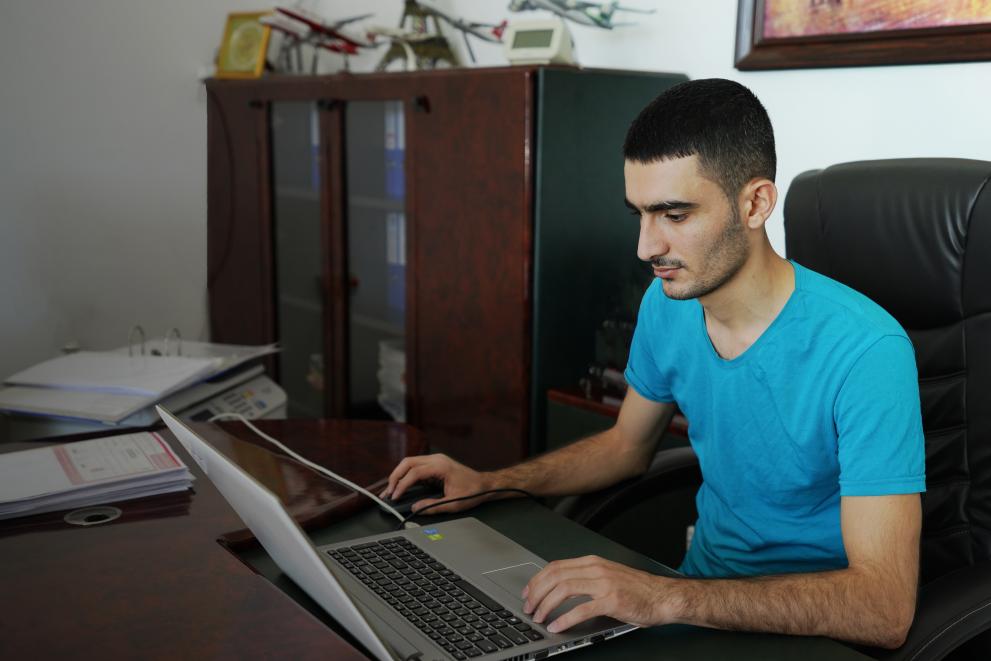
Being hired under this programme was a life changing experience, financially and psychologically, both for me and the whole family
"I always felt uncomfortable and ashamed to ask my father for money, as all my four siblings were students. My father was the only provider in the family.” Hunar, 24, was born and raised in the Khurmal district of Halabja Governorate, the Kurdistan Region of Iraq, Hunar is the eldest of five, three sisters and one brother. His mother is a housewife, and his father owns a small store for spare parts of vehicles.
Despite their limited financial means, the parents supported their children’s education. Hunar graduated from the University of Salahaddin in Erbil, in 2018.
‘When I was at school, we experienced difficult times, especially financially,” he said. “Sometimes, my father earned a daily income of 25,000 Iraqi Dinars (17.77 Euros). It was not enough to support a family of seven.”
Due to ISIL (Da’esh) invasion of Northern Iraq in 2014, over 1.4 million people remain internally displaced in Iraq to this day. They live mainly in the Governorates of Erbil, Duhok, Sulaimaniyah and Ninewah, which are also home to over 250,000 Syrian refugees. The influx of refugees that came on top of the internal conflict put a strain on local resources and public services thus impacting the living conditions of local communities.
Hunar was unemployed for nearly one year after graduation. His attempts at getting a job were unsuccessful until 1 March 2020 when he received a response from Star Alliance travel agency to work at their branch in Erbil as an accountant. The company was able to hire him and seven others after receiving a grant equivalent to 39,418 € from the Job creation in Kurdistan Region of Iraq (KRI) grant scheme. The project is funded by the European Union, through the Trust Fund under the Headway Programme, and implemented by the United Nations Development Programme (UNDP) in partnership with the Governorate of Erbil and Rwanga Foundation.
The overall objective of the Headway programme is to strengthen the long-term resilience of governorates and populations largely affected by the crisis of refugees and internally displaced people. Nearly 430,000 vulnerable people will benefit, directly and indirectly, from the programme activities.
Working in Erbil has not been easy for Hunar and his family who enjoy close ties and care deeply for one another, but it is “worth it’ he says. He now earns a fixed monthly income equivalent to 845 €. “I love my job very much as it provides the opportunity to develop my skills and establish connections. Everything about it is fun and brings me new experiences.”
“Job security is my top priority at the moment. I can do any job to support my family and build a future for myself. But, being hired under this programme was a life changing experience, financially and psychologically, both for me and the whole family.” He concludes.
The Job Creation in KRI grant scheme was launched in late 2019. As of July 2020, 56 businesses were supported to hire 661 people in the Governorates of Erbil, Duhok, Sulaimaniyah and Halabja. The new recruits include 92 Syrian refugees, 472 host community members and 97 internally displaced people (IDPs), of whom 221 are females.
